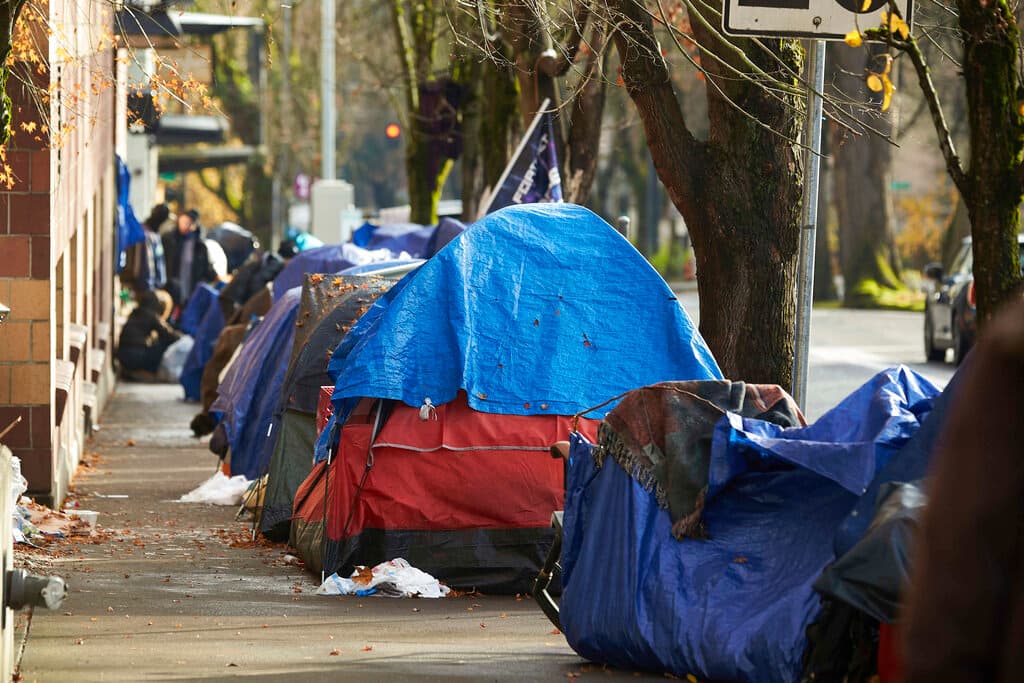Oregon Bill Would Decriminalize Camping in Public, Allow Homeless To Sue People Who ‘Harass’ Them
Homeless people who feel they have been unfairly treated in violation of the law would be able to sue their tormentors and be eligible for damages of up to $1,000 per violation.

Despite increasing concern among local residents about homelessness and the problems it is causing in Oregon, two Democratic state lawmakers have proposed legislation that would decriminalize camping in public places and allow homeless people to sue if they are “harassed” or told to relocate.
Please check your email.
A verification code has been sent to
Didn't get a code? Click to resend.
To continue reading, please select:
Enter your email to read for FREE
Get 1 FREE article
Join the Sun for a PENNY A DAY
$0.01/day for 60 days
Cancel anytime
100% ad free experience
Unlimited article and commenting access
Full annual dues ($120) billed after 60 days

